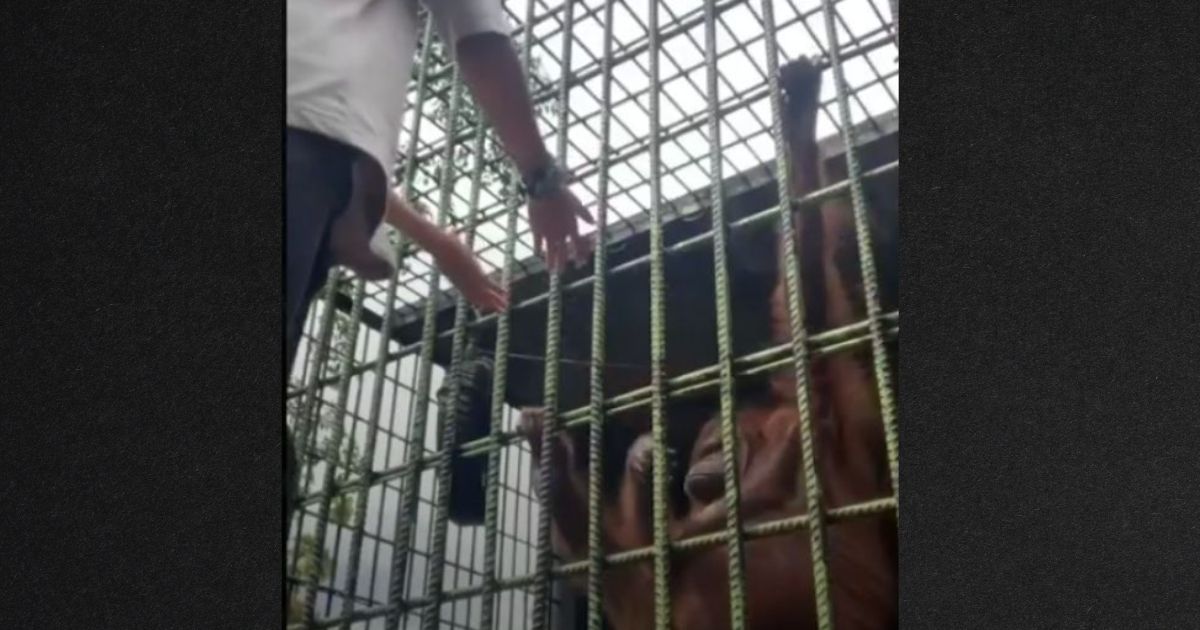The Bible describes how God created man in His own image, unique among creation for higher reasoning.
One trait that God didn’t assign to man was the first place in upper body strength.
That characteristic belongs to creatures such as the orangutan.
A photo seeker discovered this for himself when he placed himself into the grasp of one of the great apes in a viral video and realized he was unable to escape.
— xan (@sundaykisseu) June 7, 2022
The panicked man quickly realizes that getting out of an orangutan’s grasp is no easy task. The apes have the strength to swing from tree to tree in the tropical forests of Borneo.
The incident occurred at a zoo in Indonesia, according to Yahoo News.
“What happened on Monday afternoon: the visitor jumped into the guardrail of the orangutan cage to take a video without the officer’s permission,” said zoo manager Desrizal.
The manager of the Kasang Kulim Zoo said that the visitor did something worse than take a video.
“The visitor has violated the rules by jumping over the guardrail and kicking the orangutan.”
If he really did kick the orangutan, this man is in serious need of a lesson in respecting nature.
A subsequent video shows the man, identified as Hasan Arifin, escaping from the ape without visible injury. The orangutan tries to land a bite on the trespasser’s foot as he flees.
Most people don’t need to be told that getting in close proximity to an orangutan cage is probably a bad idea.
From the sound of it, the orangutan was justified to throw a scare into the trespassing photo seeker.
This incredible creature is a wild animal, not a pet designed for the entertainment of humans.
Orangutans only live on two islands in Malaysia and Indonesia, according to the World Wildlife Fund. They’re the only great apes that live outside of Africa.
The apes are seriously endangered. There are less than 120,000 of the creatures living in the wild.
Anthony Fauci’s National Institute of Allergy and Infectious Diseases sought congressional funding as recently as 2021 for twisted experiments on another species of primates.
This article appeared originally on The Western Journal.
























